Presenters
DoRN- Symposium Series 2022
The Donor Research Network is grateful to have our guest speakers who will present over the three days of the Symposium Series:
Diversity and Donation, Early Career Donor Researchers (ECRs) and Ethics and Donation.
Diversity and Donation (Day 1) Presenters
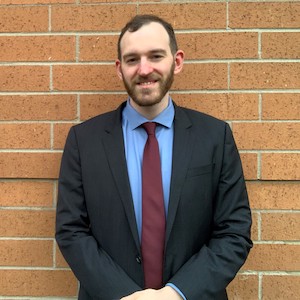
Dr. Warren Fingrut
Stem Cell Donation
Title: Addressing racial disparity in blood, stem cell, and organ & tissue donor pools
In Canada, racialized/ ethnic populations are underrepresented among blood, stem cell, and organ & tissue donors. Since patients from different ancestral groups can have unique blood and immune system markers, blood, stem cell, and organ & tissue donors from diverse backgrounds are needed. However, racialized/ ethnic populations face multiple barriers to donation. This talk reviews racial disparity in blood, stem cell, and organ & tissue donor pools, the impact on diverse patients, and the ongoing challenges that need to be addressed to support donation from racialized/ ethnic populations. The talk concludes by highlighting campaigns to engage peoples from specific racialized/ ethnic groups as donors, led by or developed in collaboration with members of these communities.
Dr. Warren Fingrut is a Canadian Hematologist, currently completing Fellowship training in Adult Bone Marrow Transplantation at Memorial Sloan Kettering Cancer Center in New York. He is Director of Stem Cell Club, a donor-recruitment organization he founded in 2011 to address racial disparity on Canada’s stem cell registry. Over the past ten years, Dr. Fingrut has led teams of recruiters across Canada to recruit tens of thousands of stem cell donors. He collaborates with diverse peoples to develop multimedia resources (e.g. donation stories, instagram.com/whyweswab/; TikToks, tiktok.com/@stemcellclub?lang=en), and virtual campaigns (e.g. stemcellclub.ca/blackdonorssavelives/; stemcellclub.ca/EastAsian) to engage underrepresented populations as donors.
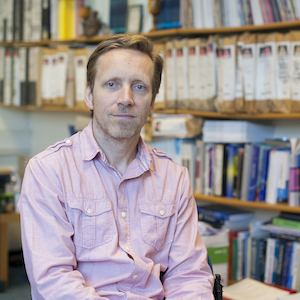
Prof. Eamonn Ferguson
Blood Donation
Title: Increasing equality and diversity by selecting on individual sexual behaviours: Development, implementation and evaluation of FAIR
This presentation describes the initial FAIR (For the Assessment of Individual Risk) project from conceptualization to evidence gathering, implementation and initial evaluation. FAIR was initiated by the UK blood services in collaboration with psychologists and public health and input from blood donors, patients and lobby groups. Blood donor selection was explored using a more individualised rather than a population-based approach to behaviours. Pre-FAIR sexually active men-who-have-sex-with-men (MSM) were deferred from donation for 3-months. The FAIR project triangulated evidence from epidemiological, behavioural and psychological science to identify questions to assess donor eligibility on the grounds of sexual behaviours. Data triangulated on 4-questions that identified increased risk both objectively and subjectively, were acceptable and unlikely to put people off donating. Following implementation in June 2021, initial evaluation shows no effect on blood safety, an increase in MSM donors, and an overall favourable evaluation in terms of emotional impact, perceived risk and operational issues.
Eamonn Ferguson is a Professor of Health Psychology at the University of Nottingham, and his work focuses on theoretical models of human cooperation and altruism as applied to real-world acts of cooperation (blood donation, organ donation). He has worked in the area of blood donor behaviour for 25 years, where he has contributed to developing theory – in particular around the concepts of warm-glow and reluctant altruism – and strategies and policies to recruit and retain blood donors, acceptability of blood substitutes and recently focusing on issues of equality, fairness and diversity of blood donors.
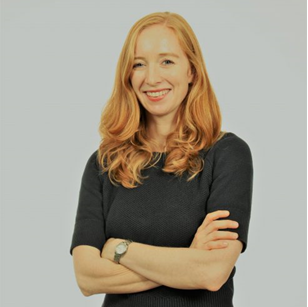
Dr. Kelly Holloway
Plasma Donation
Title: Staff experiences in the first Canadian source plasma collection centre
In 2020, Canadian Blood Services initiated a proof of concept involving new source plasma collection sites to increase plasma sufficiency in Canada. The opening of the first centre in Sudbury Ontario coincided with the COVID-19 pandemic, and required adjustments to ensure the safety of donors and staff. This study reports on a week of ethnographic work in Sudbury’s plasma centre in September 2021, involving qualitative interviews with 16 members of the centre staff. Staff navigated the challenges of opening a new plasma centre amid a pandemic by forming close bonds with each other and with donors. In addition to their tasks in the centre, they engaged in emotional labour to put the donor first and create an atmosphere that was welcome and safe. This study concludes with recommendations about how blood services can support centre staff so that they can connect with donors and communicate the value of plasma.
Kelly Holloway is a medical sociologist with interdisciplinary training in health policy and political economy. She is a Scientist with the Canadian Blood Services’ Centre for Innovation, and Assistant Professor at the University of Toronto’s Institute of Health Policy, Management and Evaluation. Dr. Holloway examines donation systems to inform blood services using qualitative research methodologies. Her current work focuses on plasma donation and health policy. She is also beginning work investigating the experiences of immune globulin recipients.
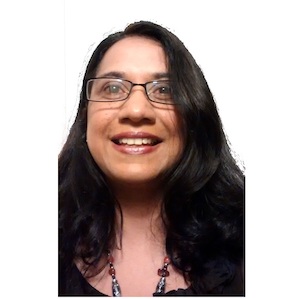
Dr. Radha Sundaram
Organ Donation
Title: Diversity in organ donors – why everyone matters
There is a continued imbalance between the need for transplants in Black and Minority Ethnic (BAME) communities in Scotland and the availability of suitable organs with the right blood and tissue type. Unfortunately less than half as many families from BAME communities support donation compared to families from a white background. The recent change in legislation in Scotland has seen an increase in opt outs from certain communities. In my lecture I explore the reasons for this imbalance, the impact of the Opt out Legislation in the UK on behaviours amongst certain groups and whether labelling a very heterogenous group of dissimilar communities under the umbrella of BAME has actually helped public engagement in this issue. I advocate for equity of access to information for all groups, the need to acknowledge that structural racial inequalities are contributory and engaging the youth in our societies as change agents for encouraging reframed conversations about the imperative and need for action.
Dr Radha Sundaram MBBS MRCP FRCA DICM FFICM is a Consultant in Intensive Care and Anaesthetics at the Royal Alexandra Hospital in Paisley . Having qualified in India, she did her postgraduate medical, anaesthetic and intensive care training in Liverpool, Oxford and Glasgow. She is the Regional Advisor for training in Intensive Care Medicine for the West of Scotland and is also a Clinical Lead for Organ Donation in Scotland to promote awareness amongst BME communities.
Over the last ten years , she has worked with NHSBT , Scottish Government and Kidney Research UK to improve education and awareness around organ donation in the multi ethnic communities in Scotland. She organised the first Faith and Organ Donation seminar in Scotland in June 2015 , a platform to encourage convesations between faith and community leaders and healthcare professionals. She has also established a diverse medical student volunteer network to help disseminate vital information and dispel myths amongst our communities.The recent change in legislation in Scotland to opt out has encouraged conversations not just with communities but with politicians from ethnic backgrounds as well. She has recently collaborated with a working group in India to develop India’s first guidelines on donation after cardiac death, published in the Internatonal Journal of Critical Care Medicine. Her interests in the area of organ donation include improving donation after circulatory deaths and introducing a tool (COMFRT) to prompt consideration of organ donation at end of life in ICUs.
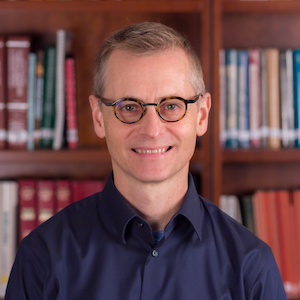
Dr. Brian Custer
Blood Donation
Title: Assessing donor variability and new concepts in eligibility: ADVANCE study and related donor deferral research in the U.S.
The study is evaluating alternatives to the blood donor deferral policy known as men who have sex with men (MSM). Currently, the U.S. Food and Drug Administration recommends that men who have had sex with another man be deferred from donating blood for three months after the most recent sexual contact. The purpose of the study is to determine whether a different donor deferral policy can be used at blood centers in the U.S. while maintaining the safety of the blood supply. Participants complete the ADVANCE Study questionnaire and a blood sample is drawn to test for HIV and for pre-exposure prophylaxis (PrEP). The ADVANCE study will help the FDA determine if a donor history questionnaire based on individual risk would be as effective as time-based deferral, in reducing the risk of HIV in the blood supply.
Brian Custer, PhD, MPH
Vice President Research and Scientific Programs
Vitalant Research Institute
Brian Custer is the Director of Epidemiology and Health Policy Science and a Vice President of Research and Scientific Programs at Vitalant Research Institute in San Francisco. He holds a Master of Public Health in Epidemiology (1999) and PhD in Health Outcomes Research (2003) from the University of Washington in Seattle. He is the chair of the ISBT Transfusion Transmitted Infectious Diseases Working Party, and member of AABB committees. He is a principal investigator for several US NIH and FDA-funded national and international research studies and has authored over 180 publications in blood safety and transfusion research. https://research.vitalant.org/Investigators/Individual-Investigators/BRIAN-S-CUSTER,-PHD,-MPH.aspx
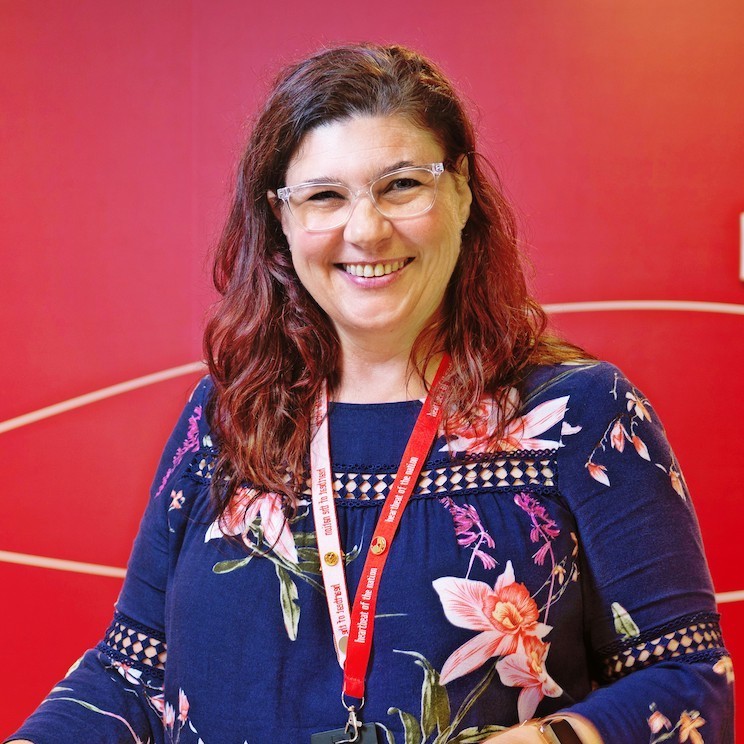
Maree Perry
Blood Donation
Title: Blood: Understanding thoughts, feelings and beliefs of Aboriginal and/or Torres Strait Islander peoples about blood, blood donation, transfusion and blood tests.
In some populations, blood has complex and embedded meanings to people – it is not simply a substance without meaning. In some cultures, such as Aboriginal and Torres Strait Islander cultures, blood represents familial relationships, kinship, religion and/or identity and ethnicity.
My aim is to make blood transfusion and blood donation for Aboriginal and/or Torres Strait Islander peoples safe from a cultural perspective by listening to their thoughts, feelings and beliefs about blood, blood donation, transfusion and blood tests. By listening to the voices/stories of Aboriginal and/or Torres Strait Islander peoples about their thoughts on these topics, it will allow Health Practitioners to use that information in their health service to make the care they provide culturally safe. This information may also form part of training either through annual compulsory personal development training or greater education through universities or specific health sites for health professionals who are tasked with managing the health conditions of Aboriginal and/or Torres Strait Islander patients.
Maree is an Nganyaywana (Anaiwan) and Wiradjuri woman, with family ties to Niangala and Wellington in NSW. She holds a Bachelor of Biomedical Science majoring in Cell and Molecular Biotechnology, and is undertaking a Doctor of Philosophy at QUT. Maree is a Research Assistant at the Australian Red Cross Lifeblood, Brisbane. Maree’s aim is to make blood transfusion and blood donation for Aboriginal and/or Torres Strait Islander peoples safe from a cultural perspective by listening to their thoughts, feelings and beliefs about blood, blood donation, transfusion and blood tests. This can be integrated into educating health professionals about this important area of chronic health care.
Early Career Researcher (ECR; Day 2) Presenters
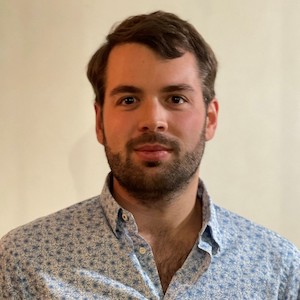
Dr. Antoine
Beurel-Tréhan
Plasma Donation
Title: From whole blood donation to plasma donation: addressing barriers to improve conversion
As recruiting plasma donors is crucial for non-remunerated blood collection agencies, we evaluated two experimental designs aiming at converting whole blood donors to plasma donation. We developed a promotional support for plasma donation aiming at reducing barriers to donation (donor-centered support) and compared it to the standard support of the French Blood Establishment focusing on needs for plasma donation (patient-centered support) and a control condition. In a second design, we replicated the effect of our donor-centered support and tried to reinforce the approach using an implementation intentions technique. Results showed that donor-centered communication was associated with lesser anxiety, higher anticipated regrets and intention to donate, and higher likelihood of committing to donate plasma, in comparison of patient-centered communication and control condition. Implementation intentions did not increase the effectiveness of the approach. Drawing on these results, we recommend that blood collection agencies develop “donor-centered” communication campaigns.
Antoine Beurel-Tréhan, PhD in psychology; organizational psychologist
Antoine Beurel-Tréhan is a doctor in psychology and a psychologist specialized in organizational change. He works as a researcher at the French Blood Establishment where he completed his PhD, affiliated with the University of Rennes and the “Laboratory of Psychology: Cognition, Behavior, and Communication”. He studied determinants of plasma donation behavior, in order to develop applied methods to convince whole blood donors to donate plasma. His areas of interest also target recruitment of non-donors, retention of plasma donors, and the impact of negative donation experiences (e.g. definitive deferrals) on donors.
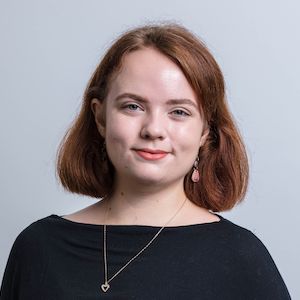
Abigail Edwards
Blood Donation
Title: Psychological ownership and identity motives in blood donation
In Australia, 26.5% of first-time blood donors won’t return to donate again. Although donor attrition is highest between the first and second donation, we can lose donors at any stage of the donor career. As such, I argue that retaining existing donors provides a key opportunity for intervention. A blood donor self-identity has been proposed to motivate sustained blood donation behaviour. However, interventions to encourage identity in the absence of performing the associated behaviour (i.e., donating blood) are scarce. In the absence of effective interventions to build identity, psychological ownership provides a potential avenue for fostering a donor identity and subsequent blood donation behaviour. In this presentation, I provide initial support for a model of blood donation behaviour in which blood donors past behaviour is positively associated with psychological ownership, which is positively associated with self-identity, and subsequently associated with future donation intentions.
In 2019, Abigail graduated from the University of Queensland with a Bachelor of Science (Honours) in psychology. Her honours research assessed unique question-based interventions for blood donor recruitment and retention, as well as the underlying emotional motivations. In 2021, Abigail was awarded a PhD scholarship under the Helping the medical matchmakers: sustaining and understanding living donors research program. Abigail’s PhD research assesses the impact of identifying as a blood donor on future intentions to donate blood. Her research falls within applied social psychology, a field which focuses on implementing social psychology theory to enact real world change.
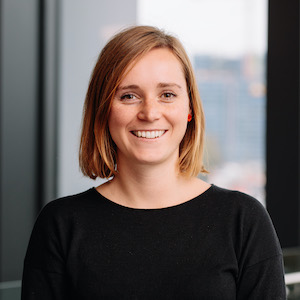
Amanda Thijsen
Blood Donation
Title: Encouraging donor return following the experience of a vasovagal reaction
Blood collection agencies face ongoing challenges in retaining voluntary donors to meet the demand for blood and blood-related products by healthcare services. A known deterrent to continued blood donation is the experience of a vasovagal reaction. In a qualitative interview study, we found that donors felt more likely to return if they perceived their risk of a recurrent event as low and if they were able to identify appropriate problem and emotion-focused coping strategies. We used these insights to design a post-donation intervention to improve donor retention following a vasovagal reaction. We found that addressing common donor concerns in an email significantly increased donor return among first-time whole-blood donors. This presentation will focus on describing donor experiences of vasovagal reactions and how they feel about returning to donate, and the evaluation of the newly designed post-donation intervention.
Amanda Thijsen is a social science researcher with interdisciplinary training in human geography, public health, and knowledge translation. She is a Senior Research Assistant at Australian Red Cross Lifeblood and is undertaking a Doctor of Philosophy at the University of Sydney. Amanda’s work focuses on improving the experience of donating blood, with a particular emphasis on reducing the occurrence of adverse events and their impact on donor retention. Her work has been implemented into routine blood collection practice and she has a continued interest in ensuring policies and practices relating to blood collection are informed by research evidence.
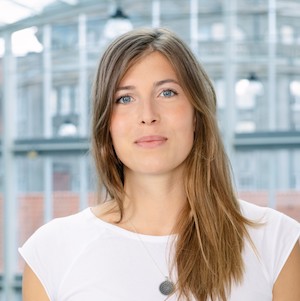
Carolin Saltzmann
Blood Donation
Title: On consciousness of the decision to discontinue blood donation: Intention to return and effective recovery activities
This presentation is about a study co-authored by Silke Boenigk that aims to (1) explore the consciousness of blood donors’ decision to stop donating blood, (2) analyse the association with the donors’ intention to return to blood donation and the various reasons for discontinuation, and (3) identify effective activities for the recovery of donors who are no longer donating blood.
It features survey data of former German blood donors (n = 1263) who did not donate blood for >36 months.
The results show that former blood donors may be located at distinct stages of consciousness about their decision of discontinuation. Furthermore, the findings indicate that the intention to restart blood donation and the most important reasons for discontinuation vary depending on the consciousness. The most effective activities for recovery are more flexible donation hours, appointment-scheduling online, and sending out reminders.
Carolin Saltzmann is a PhD student and research assistant working at the chair for Management of Public and Nonprofit Organizations in the Department of Socioeconomics at the Universität Hamburg in Germany. She is a member of the Research Cooperation Health Marketing with the German Red Cross Blood Donation Service North-East. The aim of this cooperation is to use scientific insight to derive on this basis new strategies and measures for the German Red Cross blood donation services.
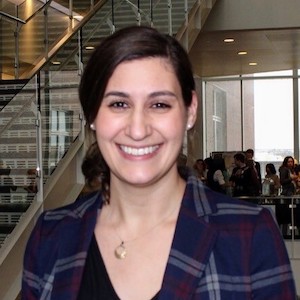
Danielle R. Blazek
Organ Donation
Title: Increasing organ donor registration by decreasing satisficing
Following a recent review that suggests that some practices within Motor Vehicle Departments (MVDs) may reduce organ donor registrations, this experiment was designed to determine if the placement of the donor question matters for registration. Specifically, this experiment examined whether when the donor question either preceded or followed a series of questions commonly asked in MVDs influenced the likelihood of registering as an organ donor. Question placement proved to be significant for both donors and non-donors. This appeared to be because of satisficing, a common behavior where respondents do not give the most accurate response in an attempt to save effort. These results have implications for MVDs, where more than 90% of all registrations in the United States occur.
Danielle Blazek is a doctoral candidate pursuing her Ph.D. in social psychology from Claremont Graduate University in California. Her research interests focus on the discrepancy in attitude-behavior consistency that leaves many individuals unregistered as organ donors who hold favorable attitudes towards donation and want access to these lifesaving resources if necessary. To tackle this discrepancy, Danielle uses multiple different theory-based approaches to encourage those with favorable attitudes towards donation to register as organ donors.
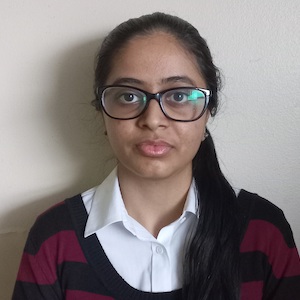
Dhara Chauhan
Blood Donation
Title: Literature on Immune Globulin (IG) recipients & clinicians
Despite decades of the growing global demand for Immune Globulin (IG), research on recipients’ and clinicians’ experiences receiving, delivering, and administering IG therapies is only starting to emerge. The purpose of this literature review is to provide a conceptual classification of the constructs in the literature on this topic to help generate new ideas or directions for future research. This presentation will share the key themes/constructs that emerged as well as identify any gaps in the literature. This review found that there is a lack of research on the experiences of clinicians and recipients as they receive, administer, or deliver IG.
Dr. Kelly Holloway, Principal Investigator at the Canadian Blood Services
Dhara Chauhan is an undergraduate Health Studies student at the University of Toronto. She is assisting Dr. Holloway at the Canadian Blood Services’ Centre for Innovation on a sociological study which aims to understand the experiences of Immune Globulin recipients and clinicians in the Canadian context.
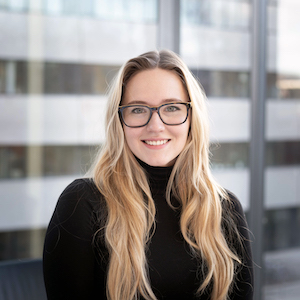
Gabriele Jagelaviciute
Stem Cell Donation
Title: Why we swab: A library of stories in stem cell donation
Stories are powerful in their ability to disseminate information in a meaningful way. We hypothesized that a stem cell donation story library optimized to social media could support the education and recruitment of committed unrelated hematopoietic stem cell donors from needed demographic groups. This talk will outline the development of Why We Swab, a library of stories in stem cell donation (@WhyWeSwab on Facebook, Instagram, and Twitter). As of May 2022, the library includes 28 story arcs featuring 45 storytellers from diverse ancestral backgrounds. Data will be presented demonstrating the impact of the library on social and traditional media, potential unrelated donor’s knowledge and attitudes towards donations, and recruitment outcomes. The talk will conclude by outlining ongoing work to expand the library to include videos and other storytelling multimedia, and to evaluate its impact on potential donors’ family members’ attitudes towards donation.
Gabriele Jagelaviciute, Medical Student, Queen’s University, Canada
Gabriele is currently a medical student at Queen’s University, Kingston, Canada. She has been involved in stem cell donor recruitment for over 5 years and has an interest in equity, diversity, and inclusion work. Gabriele is also lead of Why We Swab (@WhyWeSwab across Facebook/Instagram/Twitter), which develops and shares stories of stem cell donors and recipients, their families and caregivers, and transplant staff.
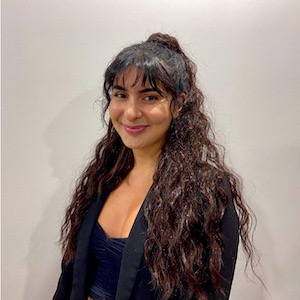
Farnaz Farahbakhsh
Stem Cell Donation
Title: Iranian donors save lives campaign to engage Iranian peoples as stem cell donors
This presentation will provide an overview of the Iranian Donors Save Lives Campaign which aims to engage Iranian peoples as stem cell donors.
Farnaz Farahbakhsh is a Masters of Clinical Science student at Western University in London, Ontario. For several years she has been involved as a leader in stem cell donor recruitment in Canada, advocating for patients from diverse ethnic groups who need a blood stem cell transplantation. She is currently leading the Stem Cell Club’s Iranian Donors Save Lives Campaign alongside an engaging team of volunteers to recruit Iranians as potential stem cell donors.
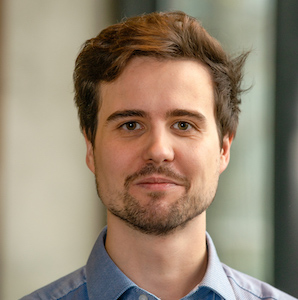
Joris M. Schröder
Blood Donation
Title: Better together: Social influences on compliance with solicitations for blood donations
Are donors recruited via word of mouth more likely to comply with solicitations? How does talking about donations relate to compliance behaviour? In this talk, I examine how social influences affect the compliance with solicitations for blood donations. Using survey and register data from the Dutch blood bank Sanquin, we show that donors that are one unit higher on our measure of talking about donations (range = 1-4) are predicted to have a 3 percentage points higher compliance with solicitations for donations. This association is moderated by experience, such that it is stronger for novice donors. An Agent-based model informed by the empirical study shows that social influence is a possible explanation for the variation in compliance rates across collection sites. Our results suggest that organizations could promote communication about donations among their contributors to increase the effectiveness of solicitations for donations.
Joris M. Schröder is a PhD Candidate at the Department of Sociology at Vrije Universiteit Amsterdam. He has a background in Socio-Economics and Development Studies and has previously worked as an Economist at the Vienna Institute for International Economic Studies. His research focusses on the social embeddedness of prosocial behaviour and blood donations in particular, and on drivers and consequences of socio-economic inequality.
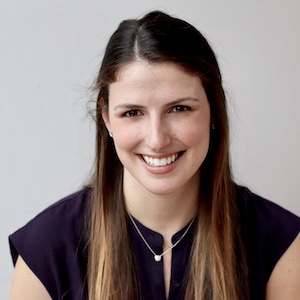
Dr. Kathleen Hammond
Egg Donation
Title: Reproductive bargaining: Egg donors’ evaluation of the “worth” of donation
Egg donation, and specifically concerns about payment for donor eggs, have been the subject of much socio-ethical debate. Debate ranges from whether non-patient egg donation should be permitted at all, given the physical, psychological ,and emotional risks, to whether payment for egg donation crowds out nonmarket values, like altruism, and is coercive. In this paper, I rely on interview data with 16 Canadian egg donors to explore egg donors’ appraisals of the “worth” of egg donation. Egg donors identified a number of losses and gains of egg donation. Ultimately, I argue that egg donors are in a sense “economic actors” (Haimes et al., 2012) who thoughtfully evaluate the losses and gains of the transaction and base their decision to donate (and often to donate again) in whether or not the transaction is “worth it” for them.
Kathleen Hammond is an assistant professor at the Lincoln Alexander School of Law at Toronto Metropolitan University in Toronto, Canada. Prior to joining Lincoln Law, she was a postdoctoral fellow with the Research Group on Health and Law at McGill University’s Faculty of Law and a visiting fellow with the Petrie-Flom Center for Health Law and Policy at Harvard Law School. She holds a JD and BCL from McGill University. She completed an MPhil in Multi-Disciplinary Gender Studies and a PhD in Legal Sociology at the University of Cambridge where she was a Gates Cambridge scholar and a Commonwealth scholar.
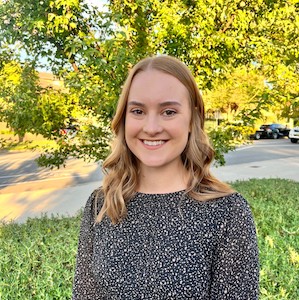
Kate Nicholls
Blood Donation
Title: “Dirty blood”: Attitudes and emotions in the context of blood donated by men who have sex with men
Recently, many countries have changed restrictions that historically excluded men who have sex with men from donating blood. These changes are welcomed, especially in LGBT communities. It is unknown, however, how the public respond to the addition of blood donated by men who have sex with men into the blood supply. Two studies examined attitudes and emotional responses in this context. Study 1 documented more negative attitudes towards a homosexual male donor relative to a heterosexual male donor, an effect mediated by heightened anxiety and disgust and lower gratitude. Study 2 replicated these findings and demonstrated that effects were robust to reminding participants of the safety testing completed on donated blood. These results echo broader, documented prejudice towards men who have sex with men. Directly targeting the emotional responses that underpin negative attitudes could be key to ensuring broad support for policy changes in this space.
Kate is currently pursuing her PhD at UNSW Sydney. She completed her Honours degree in Psychology at UNSW in 2019 and has worked as a research assistant across a variety of projects. Broadly, her research interests include health behaviours and health-related decision making.

Lauren Sano
Stem Cell Donation
Title: East Asians save lives
This presentation will provide an overview of the East Asians Save Lives Campaign which aims to engage East Asians as stem cell donors.
Lauren Sano is currently an undergraduate student at Western University in London, Ontario. She has been involved as a leader in stem cell donor recruitment in Canada for several years. Currently, she is president of the Western University Chapter of Stem Cell Club, and lead of Stem Cell Club’s East Asians Save Lives campaign. She is also a member of the @WhyWeSwab committee which develops stories of stem cell donors and recipients. Lauren previously was a stem cell donor for her father, and she uses her story as a platform to encourage and educate others to join the registry

Lina Hamad
Stem Cell Donation
Title: Exploring prospective donors’ perspectives on stem cell donation for cell and gene therapy research and development
Stem cell registries and not-for-profit charities play a crucial role in the advancement of stem cell research and the development of novel treatments such as cell and gene therapies. However, as these organizations’ role entails direct involvement with prospective donors to provide stem cells, a multitude of ethical considerations emerge. As such, a blood cancer not-for-profit UK organization conducted a survey in 2019 to explore prospective donors’ views on donating stem cells for novel treatments research and development. The survey was completed by 2400 prospective stem cell donors. The presentation will focus on the results of the survey and the implications of these findings for the cell and gene therapy community as well as future research.
Lina Hamad is a final year medical student at the American University of Beirut, Lebanon. She holds an undergraduate degree in medical laboratory sciences. She has a passion for research, particularly on genetic diseases and public health. Lina is interested in the field of obstetrics and gynaecology, and she is planning on pursuing her medical career in the United Kingdom upon graduation.
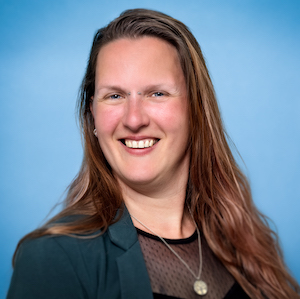
Dr. Marloes Spekman
Plasma Donation
Title: Donating plasma: Experiences from the Dutch ‘powerbank’
In an attempt to become more self-sufficient in terms of plasma collection, the Dutch blood supply organization in the Netherlands – Sanquin – opened up a plasma-only donation center in 2020: the Powerbank. The Powerbank aims to recruit and retain large numbers of (new) plasma donors by focusing on visibility, efficiency, and hospitality. Located in a mall, the Powerbank intends to offer donors a smooth and comfortable process and offers a loyalty program to encourage retention. Using qualitative focus group discussions, we studied how donors perceived and experienced the Powerbank. Even though donors had mixed feelings about some aspects of the Powerbank, they were generally quite positive about the look and feel of the Powerbank, the visibility of the location, the hospitality of the staff, and the loyalty program. Future studies will tell whether these experiences also pay off in terms of donor recruitment and retention.
Marloes Spekman, PhD (she/her) is a postdoctoral researcher at the department of Donor Medicine Research at Sanquin Research in the Netherlands. She has a background in the social sciences, and has been combining quantitative and qualitative research methodologies since she started working in the field of blood and plasma donor behavior. Her current research focus is on the experiences, behavior, and psychology of plasma donation in a voluntary, non-remunerated context.
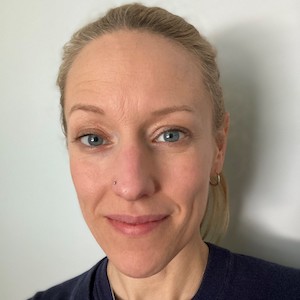
Dr. Shana Hughes
Blood Donation
Title: Practicing sanitary citizenship: qualitative findings on motivations for blood donation by HIV+/ARV+ blood donors in South Africa
People living with HIV (PLWH) are ineligible to donate blood but donations by PLWH on anti-retroviral drugs (HIV+/ARV+) have been detected in South Africa and the USA. While such donations pose theoretical risk to blood safety, research on the context and motivations behind them is lacking. South African HIV+/ARV+ donors participated in individual in-depth interviews (IDI) about a recent non-compliant donation. IDIs were audio-recorded, transcribed and thematically analyzed. Interviewees reported disparate contexts and motivations for donation, but shared a deeper concern: maintaining biopolitcal respectability. Attempts to prevent HIV+/ARV+ donations must be conceived in cognizance of HIV-related stigma and resource constraints.
Shana D. Hughes, PhD, MPH, is an applied medical anthropologist with public health training in global communicable disease. She is an Assistant Investigator at Vitalant Research Institute (VRI) in San Francisco, CA. Her equity-centered research program at VRI employs mixed- and ethnographic methods to investigate blood donor motivation, with the aim of developing a nuanced and culturally-informed theory that explains and helps drive safe, life-sustaining blood donations. Her work attends to the influence of meaning, identity, and relationships on donation decisions, and explores blood donation as a biocultural process that unfolds within biographical, socio-cultural, and historical contexts.

Sylvia Okonofua
Stem Cell Donation
Title: Black donors save lives: A campaign to engage Black people as potential stem cell donors
Black patients face marked racial disparity in access to 8/8 HLA-matched
unrelated donors (match rates: <20% vs >75% for White European patients, Gragert et al,NEJM 2014). Further, Black people are not well represented on unrelated donor registries (eg in Canada, making up 3.4% of the population but <2% of donors). This presentation will provide an overview of the ‘Black Donors Save Lives’ campaign to raise awareness about this need, and support Black people to register as donors. Data will also be shown demonstrating the campaign’s impact on the knowledge and attitudes of potential donors from Black communities in Canada
Sylvia is a recent graduate of the University of Regina, where she obtained her Bachelors in Biochemistry, with hopes of becoming a physician in the near future. Sylvia has been involved in donor recruitment for the past six years. During that time, she served as President of the University of Regina’s Stem Cell Club, as well as a community liaison stakeholder with Canadian Blood Services. Sylvia is the Lead on the ‘Black Donors Save Lives’ campaign, where she advocates for the need of more Black stem cell donors on Canada’s stem cell registry. She is also a committee member on @WhyWeSwab, which develops stories of stem cell donors and recipients.
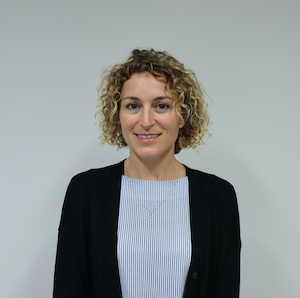
Yasmin Mowat
Blood Donation
Title: A national representative survey estimating the prevalence and perceptions of blood donation eligibility, and the main reasons for ineligibility in the population of Australia
Background
Estimates of the prevalence of the population eligible to donate blood enable blood collection agencies to model the impact of changes in eligibility criteria and inform education, recruitment, and retention strategies.
Aims
To estimate the prevalence and perceptions of blood donation eligibility in Australia.
Methods
A cross-sectional national population survey was conducted. All respondents were aged over 18 and living in Australia.
Results
A total of 5,178 people completed the survey. 59.73% were eligible to donate blood. 47% of those eligible had never donated blood in Australia. 60% of the sample correctly perceived themselves to be eligible or ineligible, 40% were incorrect or did not know if they are or are not eligible.
Summary/conclusions
This demonstrates a large pool of potentially eligible blood donors. A small proportion of those eligible have donated blood recently. Respondents’ knowledge of their eligibility status was low.
Yasmin Mowat works in the Global Health Program at the Kirby Institute, University of New South Wales, Sydney. She is both a PhD candidate and a clinical project coordinator, with extensive experience coordinating clinical trials in the UK and Australia. Yasmin currently coordinates a national Blood Donor Survey, in partnership with University of Queensland and Australian Red Cross Lifeblood. This is the focus of Yasmin’s PhD, which aims to estimate the prevalence of blood donation eligibility, and to examine knowledge, attitudes, and perceptions of blood donation eligibility in Australia.
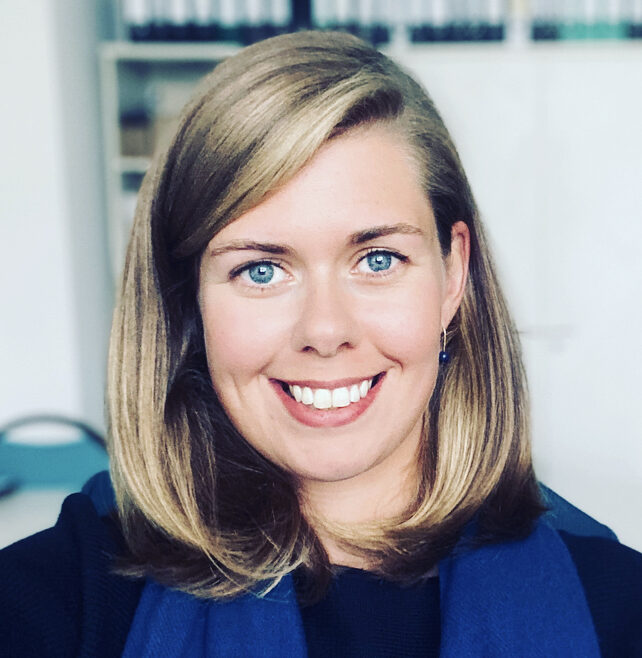
Klara Greffin
Blood Donation
Title: Motives and barriers to blood donation in first-time deferred donors
The deferral of whole blood donors is associated with a decrease in return behaviour. This reduction in return rates is particularly evident in the group of first-time donors. To understand the association in more detail, we explored motives and barriers to past donation behaviour and future donation intentions in deferred first-time donors. For this purpose, we surveyed two closed and two open-ended items in a representative study of the German population. In this sample, n=128 respondents identified themselves as deferred first-time donors. While similar motives were reported with regard to past blood donation behaviour, the motives and barriers of the participants differed depending on the intention to donate in the future. Moreover, changes in the frequency distribution of motives and barriers related to post-deferral donation intention can be observed. Some of these following a deferral may be buffered by tailored interventions.
Dipl.-Psych. Klara Greffin, University of Greifswald
- Research Assistant and PhD Student at the Department of Psychology, Chair of Health and Prevention
- Areas of Research: Assessment of Quality of Life in the context of telemedical applications, research on (deferred first-time) whole blood donors
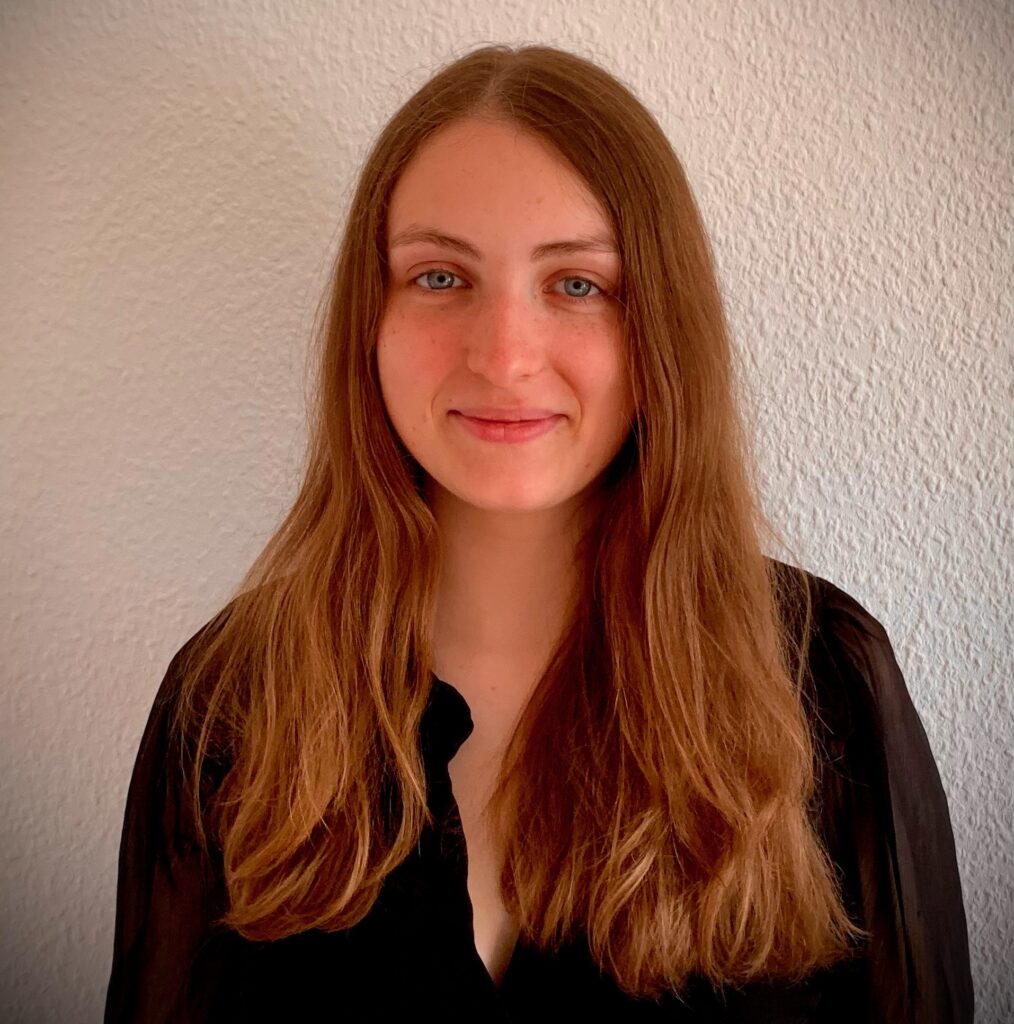
Julia von Pressentin-Panzer
Blood Donation
Title: Motives and Barriers to Blood Donation in deferred first-time Donors
The deferral of whole blood donors is associated with a decrease in return behaviour. This reduction in return rates is particularly evident in the group of first-time donors. To understand the association in more detail, we explored motives and barriers to past donation behaviour and future donation intentions in deferred first-time donors. For this purpose, we surveyed two closed and two open-ended items in a representative study of the German population. In this sample, n=128 respondents identified themselves as deferred first-time donors. While similar motives were reported with regard to past blood donation behaviour, the motives and barriers of the participants differed depending on the intention to donate in the future. Moreover, changes in the frequency distribution of motives and barriers related to post-deferral donation intention can be observed. Some of these following a deferral may be buffered by tailored interventions.
Cand. B.Sc. Julia von Pressentin-Panzer
- Psychology Student at University of Greifswald
- Sc. thesis under the supervision of Klara Greffin

Rupal Hatkar
Stem Cell Donation
Title: South Asians save lives campaign
Patients with blood cancers may require stem cell transplant as part of their treatment, and most do not have a fully matched donor in their families. Patients are more likely to find a match within their own ancestral group, but south Asian donors are underrepresented on Canadian and global stem cell registries. South Asians make up one fifth of the world’s population. However, less than 2% are registered as stem cell donors, resulting in less than 40% south Asian patients find a match which could save their lives and leaving many patients without a donor to give them second chance at life. Therefore, goal of this campaign is to educate and encourage young South Asian to register as a stem cell donor using multimedia resources.
Rupal Hatkar is a third year PhD student in cancer genomics at University of Toronto (U of T) in the department of Laboratory Medicine and Pathobiology. In addition to her graduate studies, she also works as a stem cell specialist at Princess Margaret Hospital, where she assesses blood stem cell donors and recipients to ensure informed consent and clearance for transplant and supports the management of the cellular therapy inventory (including domestic and international stem cells). Since 2019, Rupal has served as co-president of the U of T chapter of Stem Cell Club, a non-profit organization which works to raise awareness about blood stem cell donation and increase representation of diverse ethnic/racial groups on the Canada’s Stem Cell Registry. In addition to her leadership in stem cell donor recruitment at U of T, Rupal supports national donor recruitment efforts through her work developing and evaluating virtual campaigns to recruit specific needed demographics of donors and to build a more inclusive donor registry, including for LGBTQ2S+ people.
Ethics and Donation (Day 3) Presenters
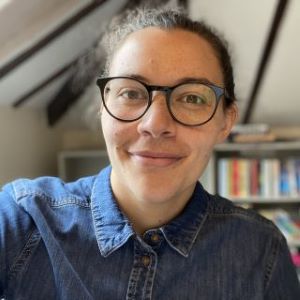
Dr. Ros Williams
Stem Cell Donation
Title: An ethico-racial imperative: considering the consequences of how ethical action and racial identity are tied together in racially minoritised stem cell donor recruitment
This presentation explores how racially minoritised stem cell donor recruitment work attempts to create community so that an ethical appeal can be made to it (i.e., we are part of the same community, so you ought to do something to help.) Based on sociological research, including ethnography, interviews, and social media appeal analysis, the presentation demonstrates how these efforts often rely on emphasising shared racial identity between asker and asked, but vitally also rest on storytelling. Stories told are generally those of illness or loss, that might be stopped by an audience deciding to donate. Whilst recruitment in this way stands to be very effective, the presentation invites watchers to consider some of the ethical problems – particularly in terms of patient/family welfare – thrown up by recruitment’s reliance on storytelling. It is hoped the presentation will give recruitment workers critical insight into the ethical underpinnings of their current practices.
Dr Ros Williams is a Lecturer and Wellcome Trust Research Fellow at the University of Sheffield. Ros joined the Department of Sociological Studies in 2016 as a Research Associate on a digital health self-monitoring project (Tracking Ourselves?) before becoming a Lecturer in Digital Media and Society. In 2019, Ros began a three-year research fellowship exploring racialised bone marrow stem cell donor recruitment (Mix & Match). Ros’ work spans across Science and Technology Studies (STS), critical media studies, sociologies of race and ethnicity, and of health and illness.
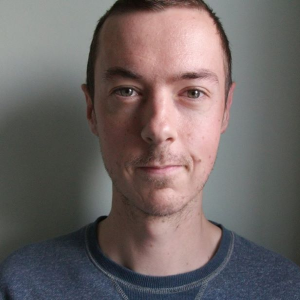
Assoc Prof. Gregory Moorlock
Organ Donation
Title: A proposal to add nuance to organ donation decisions
As progress has been made in medical science, the processes and technology supporting organ donation have become increasingly complex. At the same time, many countries have moved to systems of deemed consent, and ways to indicate one’s wishes about donation have become increasingly simplistic. In this presentation I will argue that this raises significant ethical issues, and that there is a strong chance that actions taken towards the end of a potential donor’s life will not accurately reflect their wishes. I will argue that action needs to be taken to allow people to record more nuanced wishes in relation to organ donation, and I will propose a simple way in which this could be achieved.
Greg is an Associate Professor at Warwick Medical School, specialising in medical ethics and law. He is Academic Lead for Values, Law and Ethics and he teaches extensively on Warwick’s MBChB programme. His research focuses on ethical issues in organ donation and transplantation.
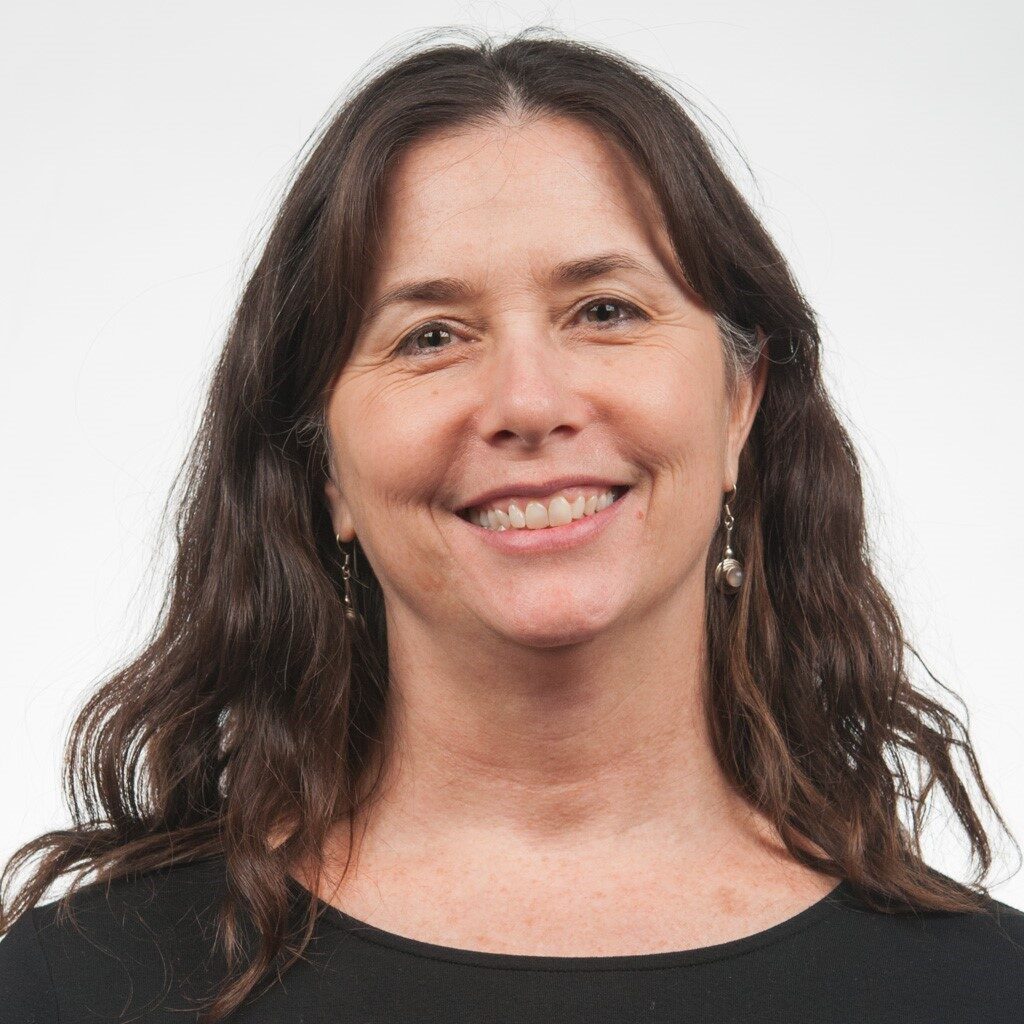
Assoc Prof. Kiersten Israel-Ballard
Human Milk Donation
Title: Strengthening systems to ensure equitable access to lifesaving human milk – Ethical challenges and implications of sharing, selling, and donating human milk
Human milk is considered a medical product of human origin. Unlike other MPHO, there are no global guidelines to inform implementation, safety and ethical considerations on use of donor human milk. Numerous ethical challenges exist across the human milk banking system, including the donor mother, recipient infant/mother as well as the product of donor human milk. There are a number of important ethical considerations that policymakers, regulators, health workers, and mothers must consider in facilitating and navigating supportive breastfeeding environments, including the provision of human milk within different socioeconomic contexts. Ethical considerations and actions must address vulnerability, equity and fairness, respect for autonomy, and human rights. Governance mechanisms and legislation is needed to guide safe and ethical use of donor human milk.
Kiersten Israel-Ballard, DrPH, is Team Lead for PATH’s Maternal Newborn, Child Health and Nutrition program and Affiliate Associate Professor in the Department of Global Health at the University of Washington. She has over 20 years of experience in assessing and supporting methods for optimal infant and young child feeding. Her work has largely focused on conceptualizing appropriate infant feeding methods for vulnerable infants in developing countries, including HIV affected infants. In her current role, Dr. Israel-Ballard leads the human milk initiative at PATH. This has included developing an integrated newborn nutrition model, establishing global teams for working with local governments to ensure sustainable implementation, conducting advocacy for human milk banking as a cost-effective strategy for improving health of vulnerable infants, establishing a global technical advisory group, leading rigorous evaluations to determine impact, and developing innovative human milk banking technologies for resource-limited settings. She has also led programs to support implementation of nutrition programs for local governments and partners and focuses on innovative approaches to improve infant health through identifying and assessing the feasibility of novel technologies. She has considerable international experience, working at all health levels in Kenya, South Africa, Tanzania, Zimbabwe, Rwanda, Vietnam and India.
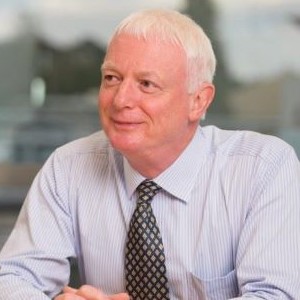
Dr. Peter Flanagan
Blood Donation
Title: Reward and recognition – Strategies to improve retention
Blood Services are reliant on donors in order to ensure the ongoing availability of blood and blood components for patients. Blood Services internationally promote voluntary non remunerated blood donation (VNRD) in line with recommendations form the World Health Organisation and Council of Europe. VNRD is underpinned by the ethical concepts of altruism, beneficence and social solidarity. Nonetheless converting new donors into regular lifelong donors requires the development of reward and recognition strategies. This presentation will review current evidence on donor incentives and aim to identify which interventions are most likely to be effective in improving donor retention without adversely influencing the underlying motivation for donation.
Peter currently works as a Transfusion Medicine Specialist with New Zealand Blood Service based in Wellington having previously been the National Medical Director of NZBS for over 20 years. He has been closely involved with the International Society of Blood Transfusion, serving as President between 2012 and 2014 and played a key role in the development of the recently updated ISBT Code of Ethics. He has been the President of the Australian and New Zealand Society of Blood Transfusion (ANZSBT), is a member of the WHO Expert Panel on Blood Transfusion.
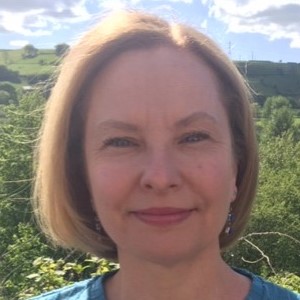
Dr. Rachel Hale
Blood Donation
Title: Extending the gift relationship? Donor, patient, stakeholder, and publics’ views on culturing red blood cells
Research on the development and use of stem cell therapies has drawn attention to a range of social and ethical issues related to innovative cell based therapies. Views on cultured red blood cells (cRBCs) need to be better understood in order to assess the social acceptability and public trust around emerging cRBC technology, and whether they see this as an extension of the donor ‘gift’ of blood donation; which is central to their adoption and diffusion. This paper draws on data from patients with blood disorders, blood donors, potential umbilical cord blood donors, publics and key stakeholders working in blood services about: the culturing of red blood cells and manufacturing of blood; the use immortalized cell lines for the treatment of patients with rare blood types; and, the social and ethical issues these groups identify related to the production of blood derived from different types of stem cells.
Dr. Rachel Hale’s background is in Sociology and Science and Technology Studies. She is currently a researcher at Cardiff University and the work she is presenting at the symposium was conducted at the University of the West of England (Hale and Kent 2017). Her research interests focus on emerging technologies, including biotechnologies (synthetic biology, pandemic vaccines, genetic testing and screening) and low carbon technologies.
Hale, R. and Kent, J. (2017a) ‘Extending the Gift’?: Donor perspectives on laboratory grown red blood cells, Blood and Transplant Matters, 50: 10-11.
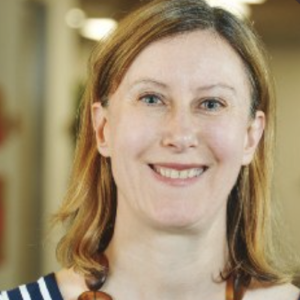
Dr. Rachel Thorpe
Blood Donation
Title: Who benefits? Perspectives of current and potential donors on genomic testing of donated blood
Next generation sequencing and high throughput genomic technologies are enabling blood collection agencies (BCA) to genotype more donors at a lower cost, potentially identifying more rare donors and better matching donor blood to recipients. Future strategies to manage donors may also be informed by the results of studies being undertaken to investigate links between genetic markers and donor health. However, little is known about how current and potential donors view their blood being tested for genomic markers or would react to information and donor management strategies based on this. In this talk we discuss findings from a focus group study with Australian donors and non-donors exploring perspectives on receiving information through genomic testing of donor blood. We discuss perspectives on the appropriateness of testing being conducted by the BCA and on consent. Findings demonstrate that BCAs should carefully think case-by-case how its donors interpret genomic testing and how these interpretations might reconstruct understanding of what it means to be a blood donor.
Rachel completed her PhD in Sociology from La Trobe University in 2015. She is a social researcher, with a particular interest in using qualitative approaches to gain insights into the meanings of practices that people engage in, including blood and plasma donation, and how these change over time.
She is currently involved in a range of projects to do with donor behaviour, investigating ways to improve the recruitment and retention of donors.
Rachel is a member of the International Sociological Association, The Australian Sociological Association and the Australian Association of Gerontology.
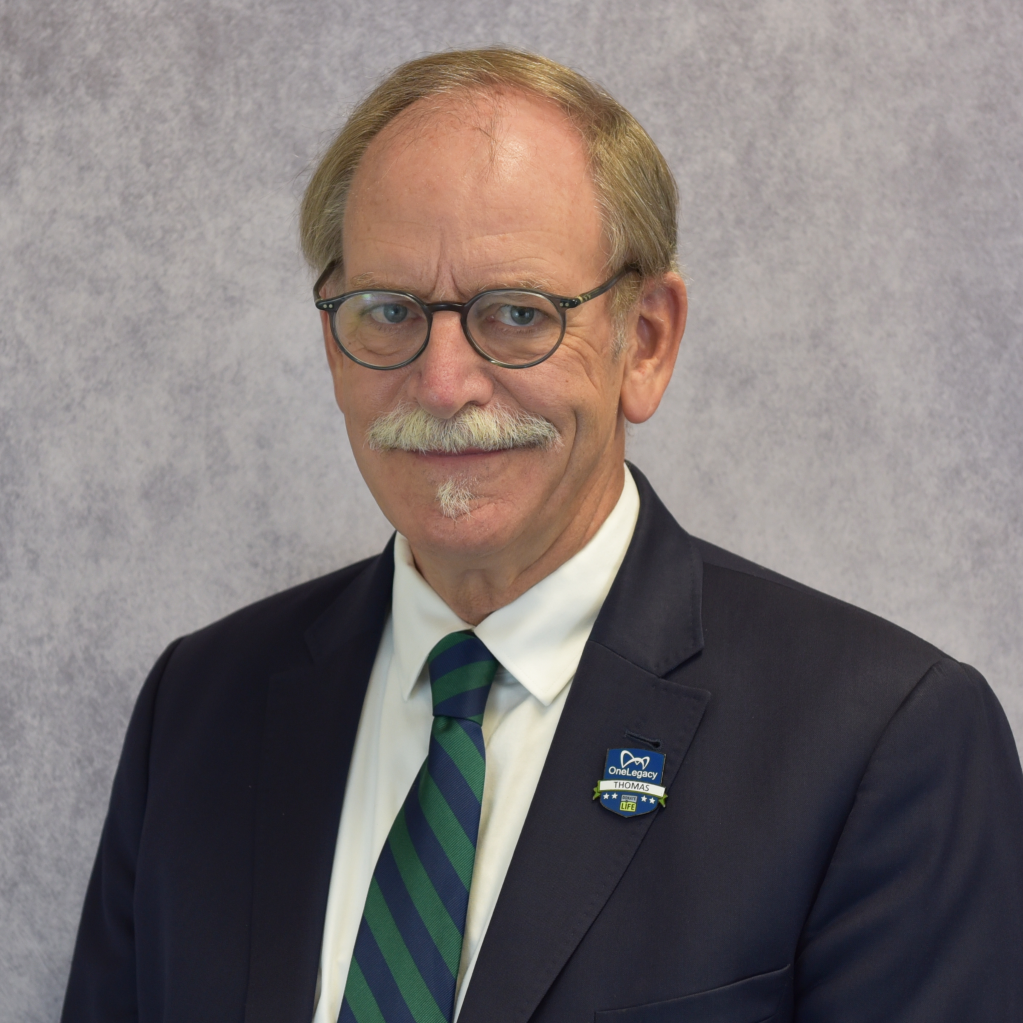
Thomas Mone
Organ Donation
Title: The ethics of organ donation and transplantation: Long-established, regularly re-examined
The ethics of organ donation were vigorously researched, debated, and formalized as the field emerged in the latter half of the Twentieth Century. This work concluded that the recovery and transplantation of deceased donor organs was ethical when organs were voluntarily donated and allocated in a manner that served the patients who had waited the longest, maximized the number of lives saved through transplantation, while recognizing the logistical and biological constraints of organ viability once recovered. With the advent and promulgation of brain death testing, the reliance upon Donation After Circulatory Death (DCDD) that was common in the earliest days of donation became relatively uncommon, and Brain Death (BD) became the standard of the field. The reemergence of DCDD in the early 2000s brought the ethical issues that had previously been resolved back to the forefront of discussion, not so much with Transplant and Donation professional, but with Donor Intensive Care and Palliative Care practitioners. Simultaneously, the ethics of organ allocation have reemerged as the ability to successfully share organ more broadly has been demonstrated and the ability to identify recipients who will likely benefit from the most years of graft function has prompted reevaluation the ethics of the prioritization of graft life, waiting time, age, and time from organ recovery to transplant. Additionally, the field regularly is called on by routinely well-meaning but underinformed individuals to address questions of the ethics of Organ Donor Registries and of Presumed Consent practices; topics whose ethical issues have long been decided, but not necessarily well promulgated. Finally, most recently, in the US fundamental question of when and how death is declared have been re-raised by small special interest groups with long-standing concerns about the removal of life-sustaining ventilation how death is declared. These continuing debates warrant a discussion with a mind to sharing the history of substantive debate and conclusions re the ethical underpinnings of organ donation and transplantation.
Thomas Mone is the 22 Year CEO of OneLegacy. He is currently serving as OneLegacy Chief External Affairs Officer.
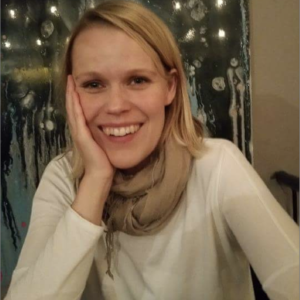
Vera Raivola
Blood Donation
Title: Who benefits? Perspectives of current and potential donors on genomic testing of donated blood
Next generation sequencing and high throughput genomic technologies are enabling blood collection agencies (BCA) to genotype more donors at a lower cost, potentially identifying more rare donors and better matching donor blood to recipients. Future strategies to manage donors may also be informed by the results of studies being undertaken to investigate links between genetic markers and donor health. However, little is known about how current and potential donors view their blood being tested for genomic markers or would react to information and donor management strategies based on this. In this talk we discuss findings from a focus group study with Australian donors and non-donors exploring perspectives on receiving information through genomic testing of donor blood. We discuss perspectives on the appropriateness of testing being conducted by the BCA and on consent. Findings demonstrate that BCAs should carefully think case-by-case how its donors interpret genomic testing and how these interpretations might reconstruct understanding of what it means to be a blood donor.
Vera is completing a PhD at the University of Eastern Finland. Vera’s research looks at how voluntary blood donors approach the possibility to add biobank donation to their blood donation practices at the the Finnish Red Cross Blood Service context.
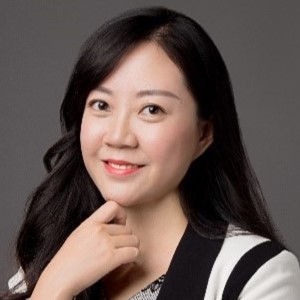
Prof. Yonghui Ma
Microbiome (faecal) Donation
Title: Ethical issues in fecal microbiota transplantation in practice
The procedure of fecal microbiota transplantation (FMT) occurs at the intersection of at least two ethically contentious areas: clinical research and therapy, and organ transplantation. Each has a set of ethical and social implications that are already highly complicated; they are further compounded by the practice of FMT. In relation to clinical research and therapy, FMT represents another therapeutic option to which patients/subjects who fail to respond to other treatments may be driven by hope and desperation. This raises questions about the limitations of our knowledge and understanding of the new procedure and access to experimental treatment results, as well as the extent of the risks involved. In relation to organ transplantation, FMT shares some of the ethical concerns raised by the problem of supply (donor), demand (recipient), and appropriate allocation of available resources. While FMT is generally still in the investigational research phase, there has been great enthusiasm about the potential for expanding its applications.
Yonghui Ma, MD., PhD., is a bioethicist and the founding director of the Centre for Bioethics at School of Medicine, Xiamen University. She obtained her PhD on bioethics from the University of Manchester in the UK (2013) (under full scholarship). She is also visiting fellow at Brocher Fondation in Geneva in 2014. She has authored more than 40 papers and has published on American Journal of Bioethics (Target Article, also the first publication from mainland China), BMC Medical Ethics, Nursing Ethics, Bioethics, Cambridge Quarterly of Healthcare Ethics, Asian Bioethics Review, as well as Chinese language journals, e.g. Chinese Medical Ethics, Medicine and Philosophy, etc. Dr. Ma’s research interests focus on research ethics, ethics of new biomedical technology, cross-cultural bioethics.